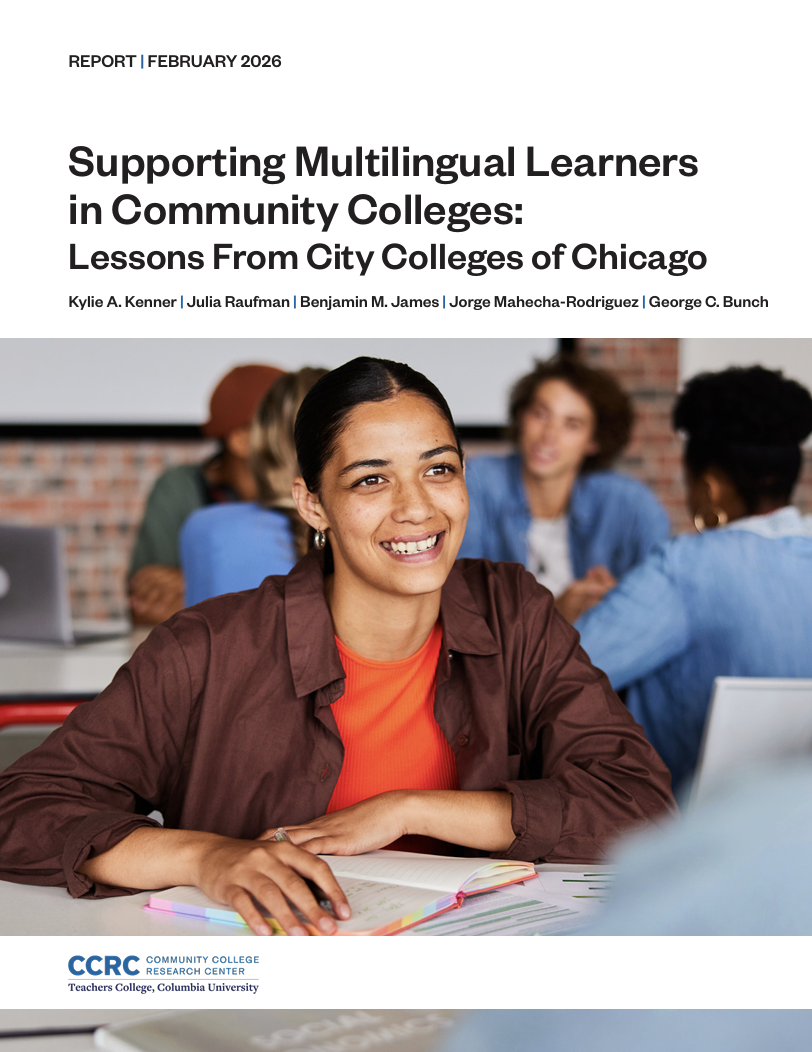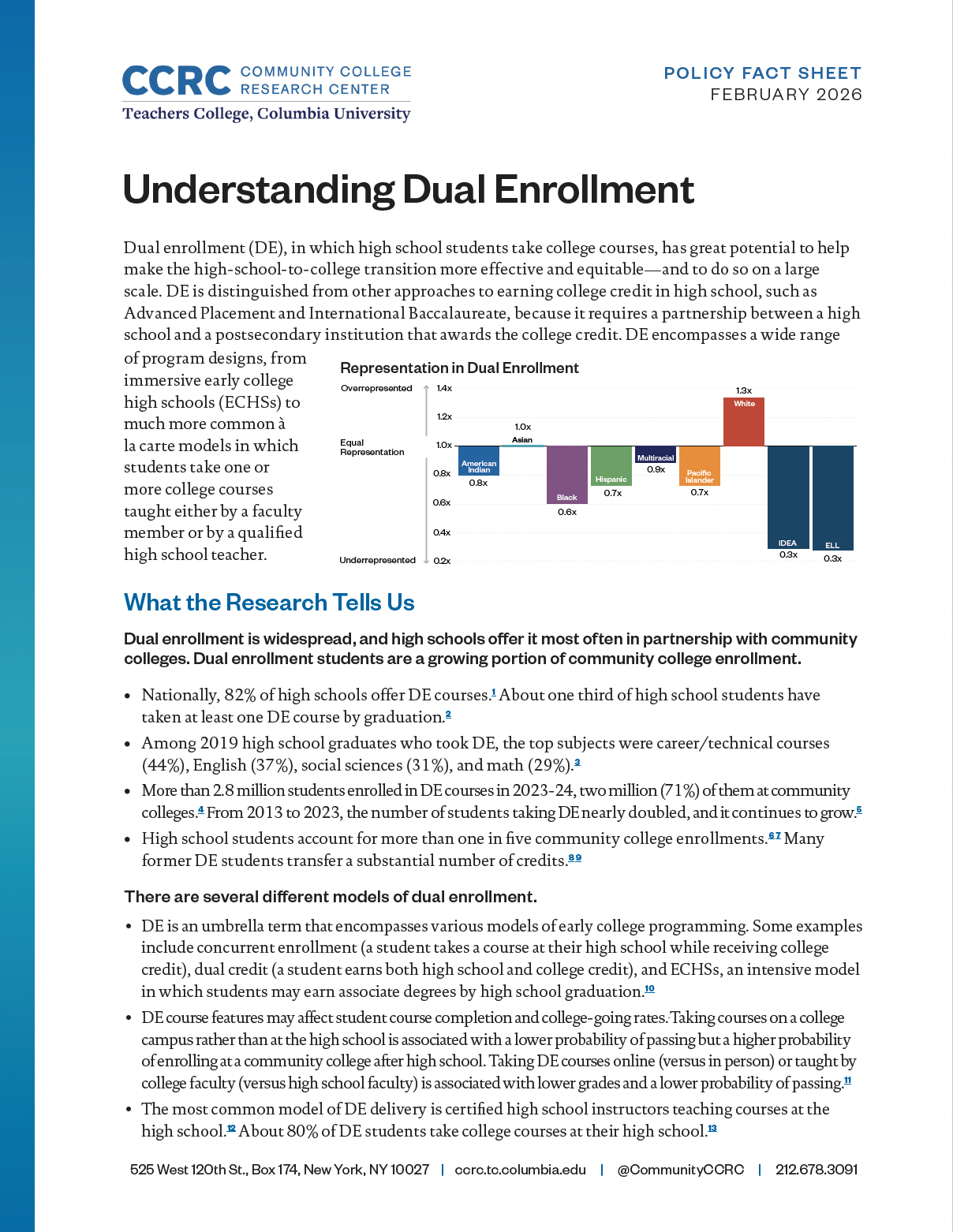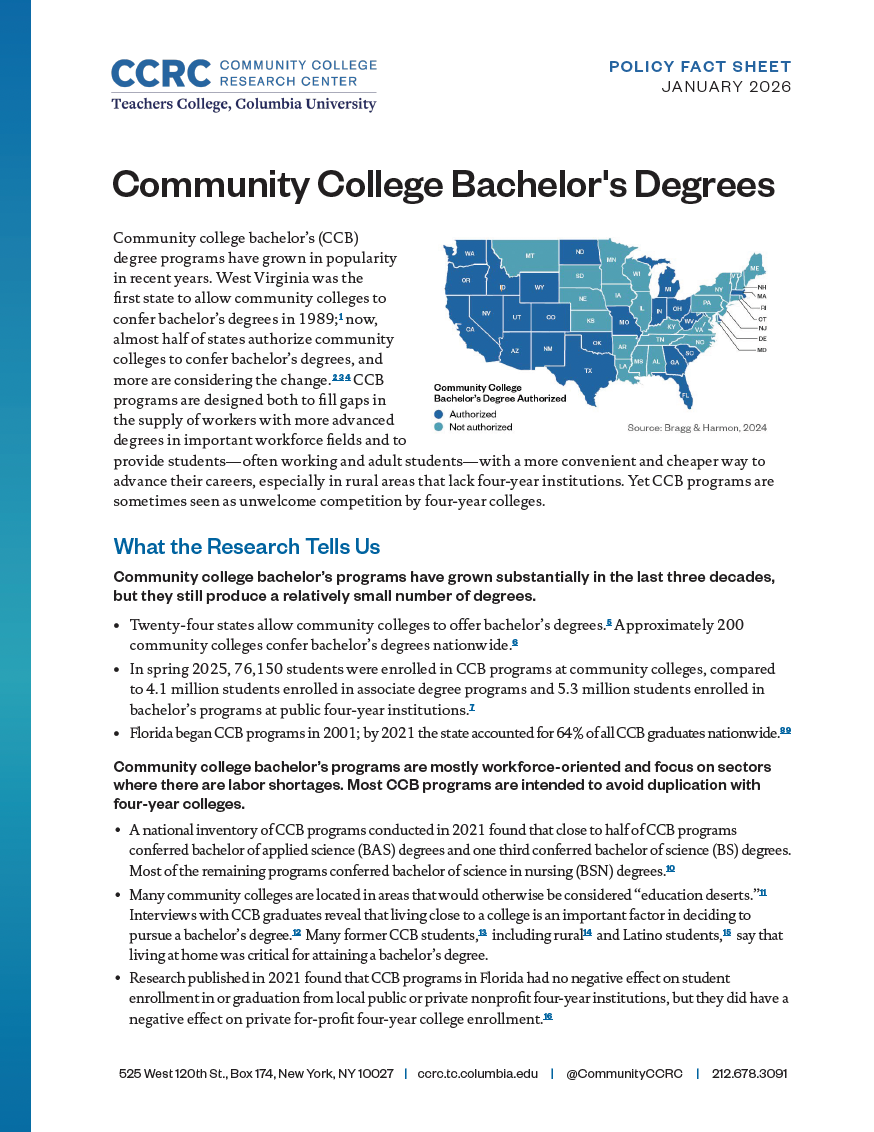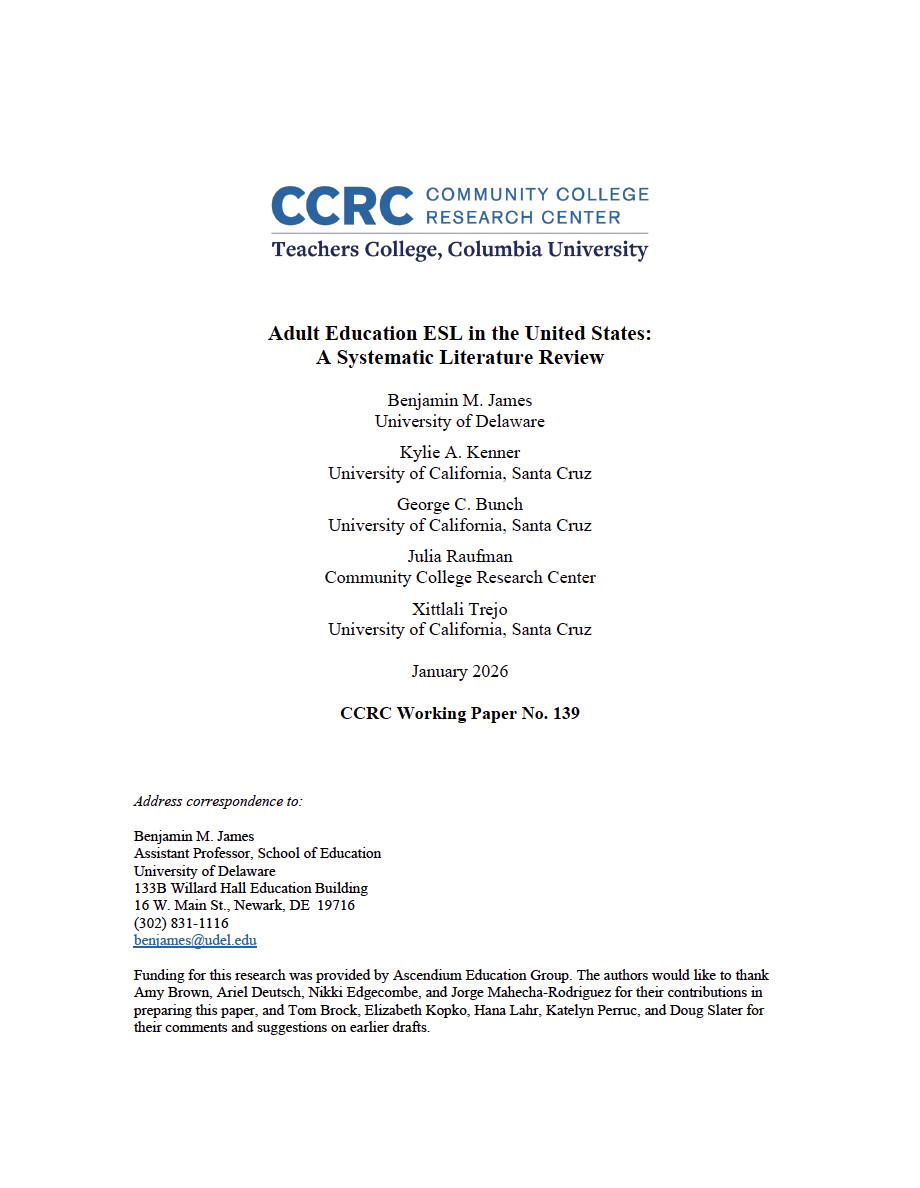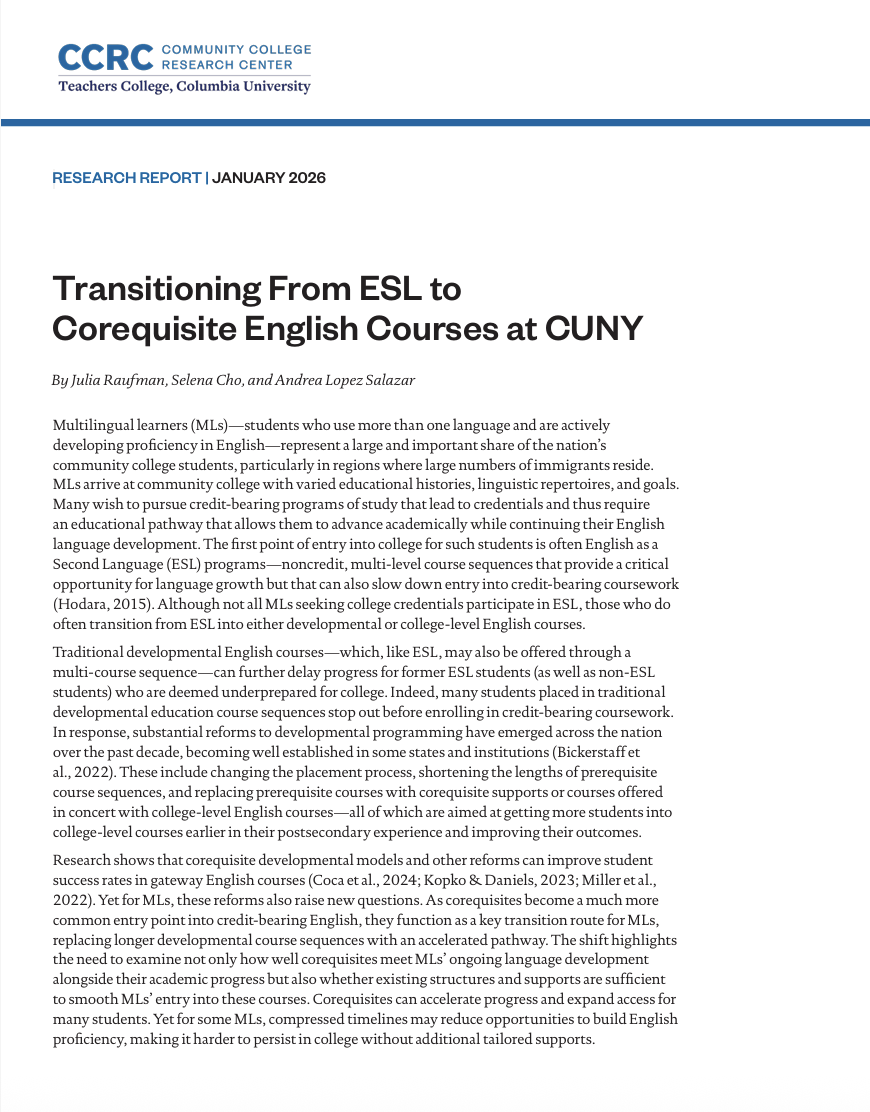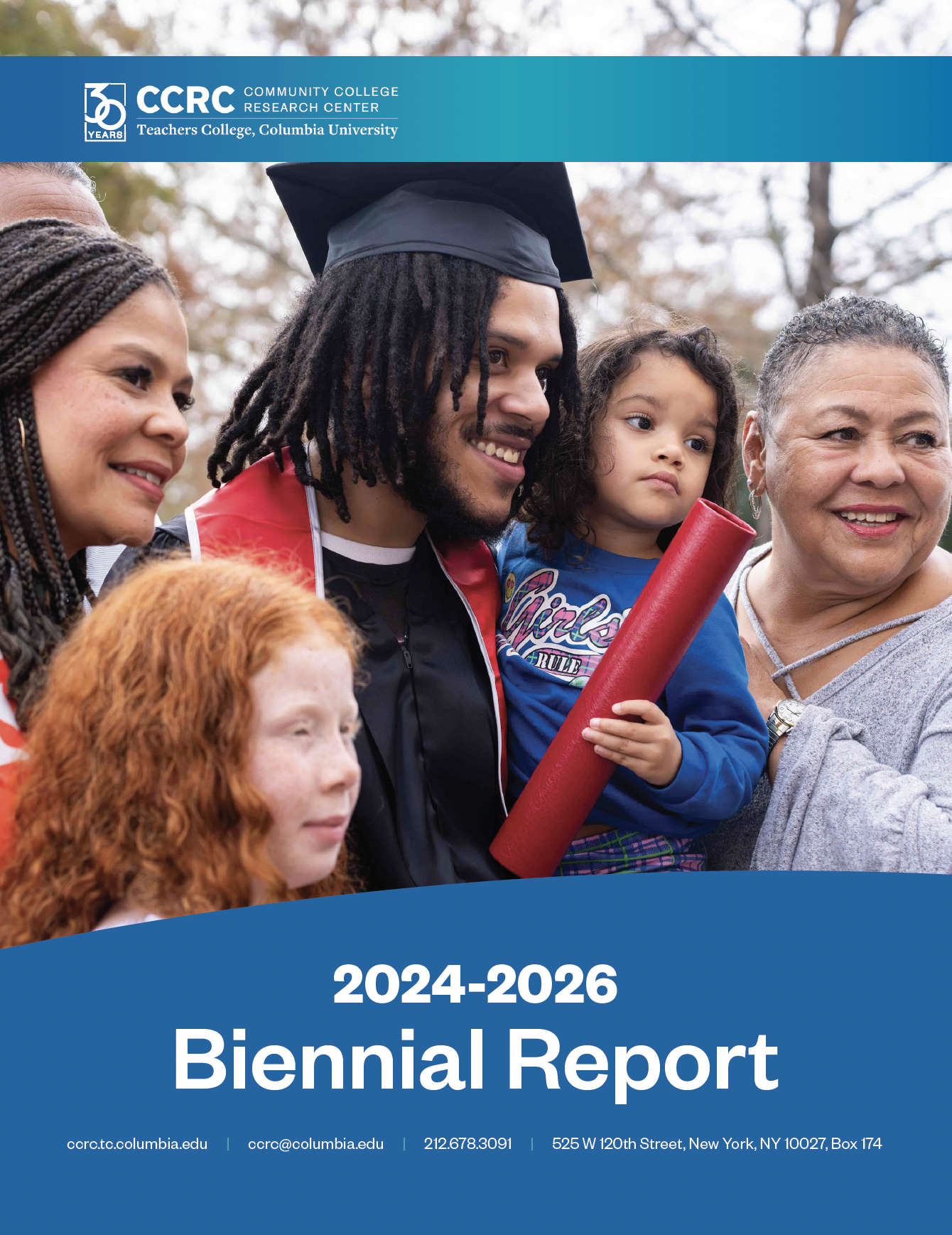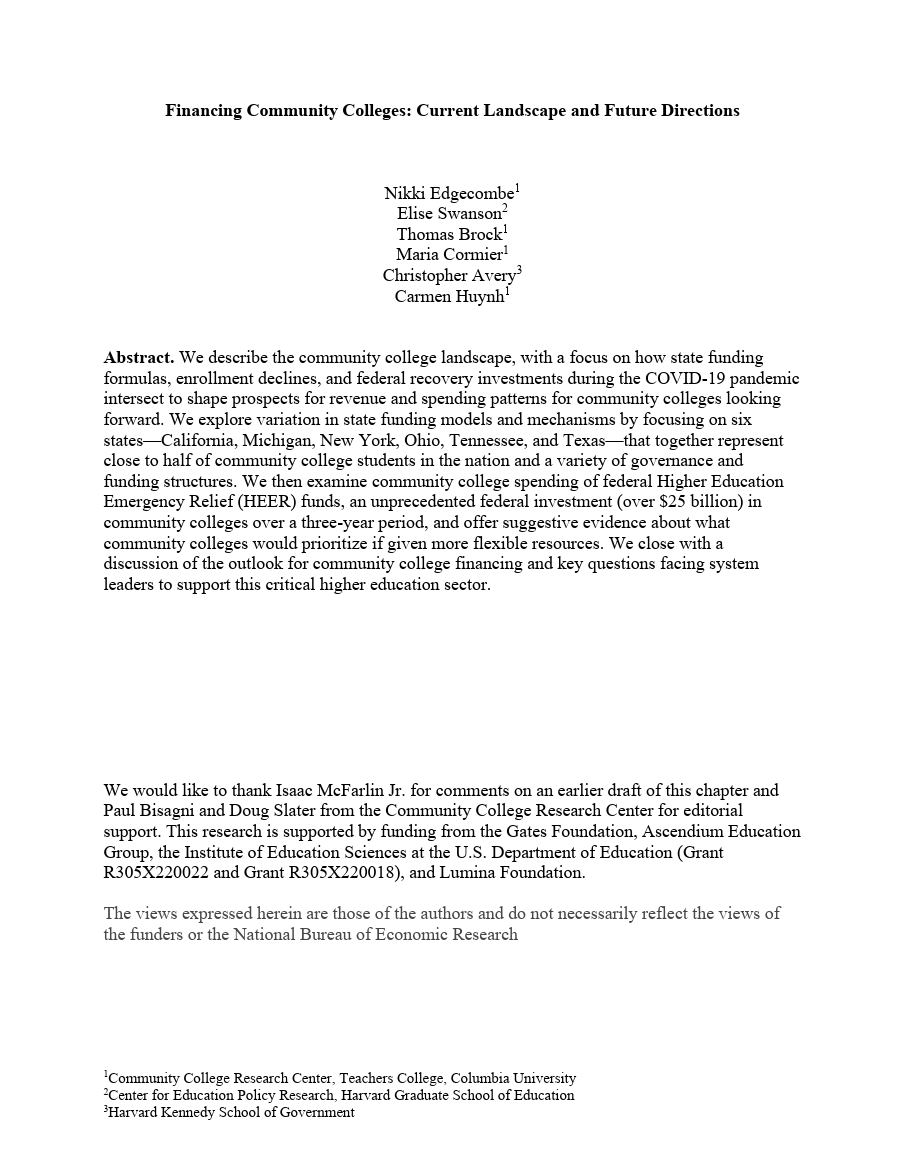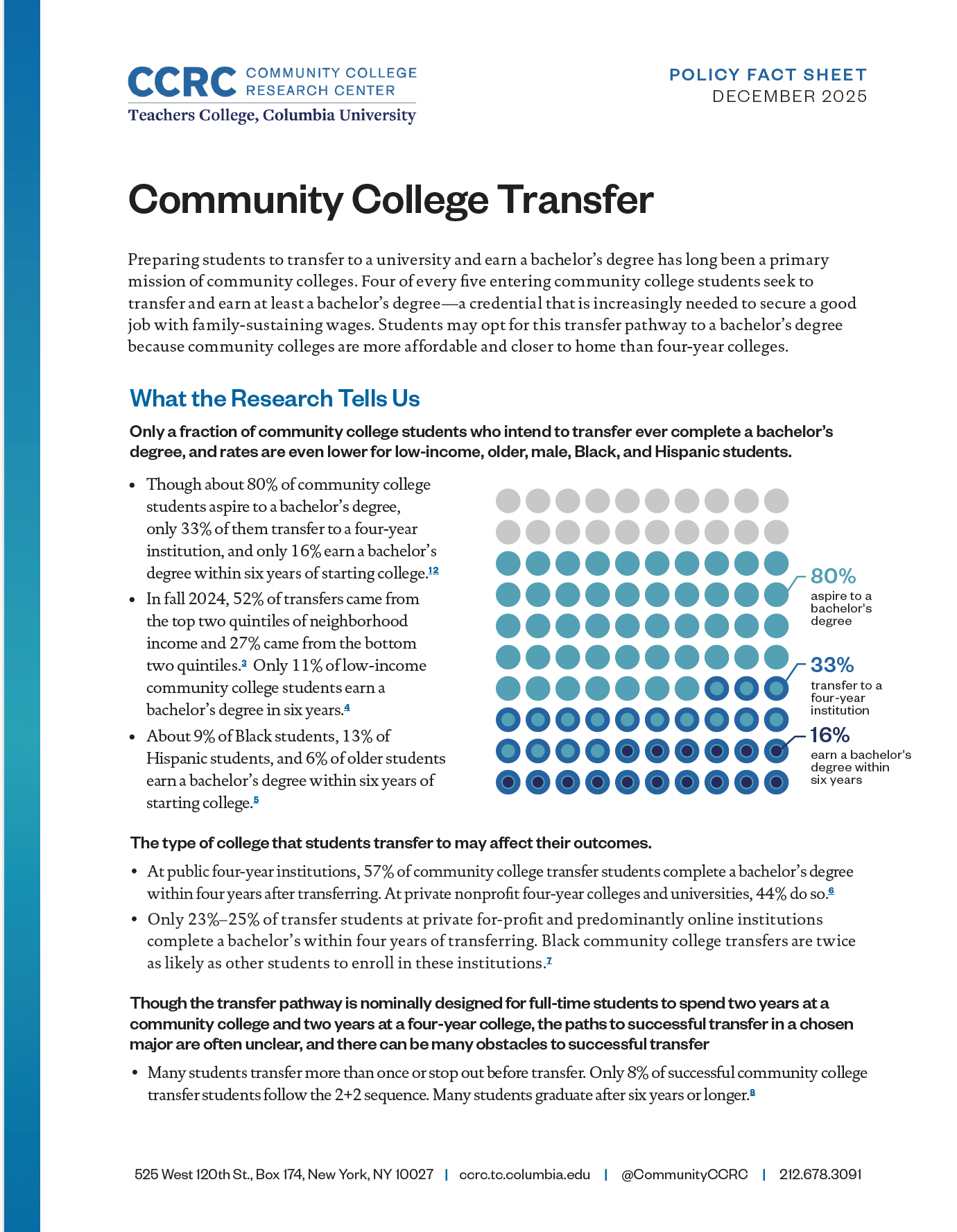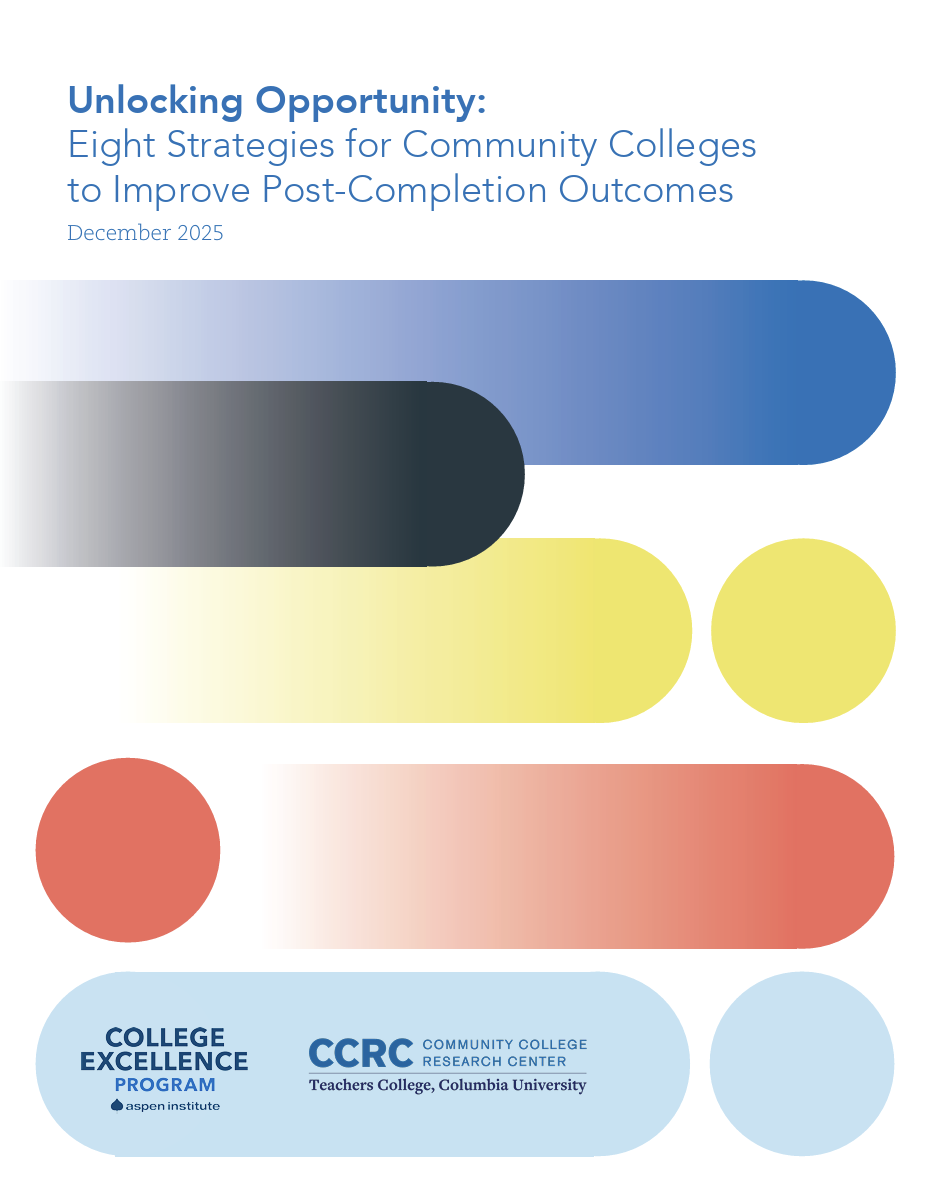February 2026
Based on findings from a study examining the policies and practices impacting multilingual learners (MLs) at City Colleges of Chicago, this report provides insights for community college practitioners and policymakers on the goals and backgrounds of MLs, their experiences, and promising approaches to serving this population.

